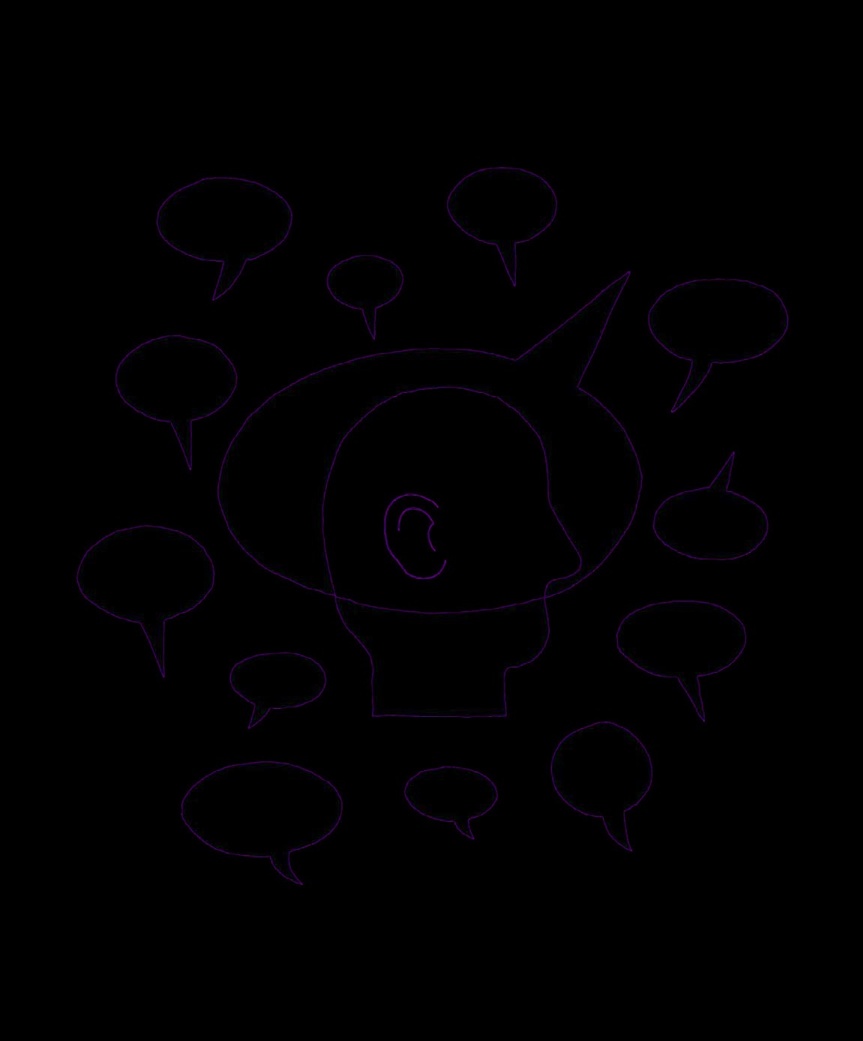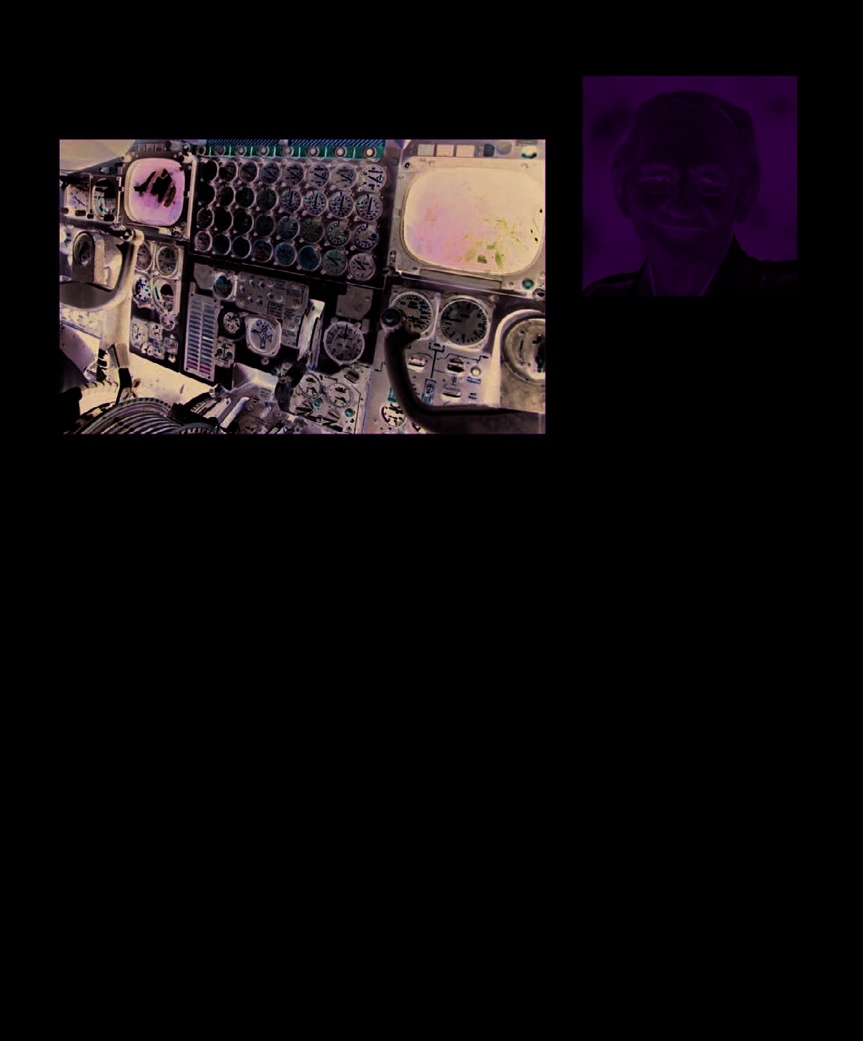The Psychology Book (56 page)
Read The Psychology Book Online
Authors: Unknown

the 1960s, chimed with concurrent
criticism of their theories as a
developments in experimental
personal attack, and Beck soon
psychology, which had established
discovered that any questioning
the dominance of cognitive
of the validity of psychoanalysis
psychology by studying mental
A distorting mirror
creates a view
was likely to be countered with
processes such as perception.
of the world that can seem terrifying
universal denouncement. At one
When Beck applied a cognitive
and ugly. Similarly, depression tends
time, he was turned down for
model to treatment, he found that
to cast a negative perspective on life,
membership of the American
helping his patients to recognize
making sufferers feel more hopeless.

COGNITIVE PSYCHOLOGY 177
Some people
For others, who view their
would view this
situation in a more negative light,
glass as
half full
.
the glass is
half empty
.
By correcting erroneous
beliefs, we can lower
excessive reactions.
Aaron Beck
How people assess
the same
situation varies with temperament.
Beck’s cognitive therapy can help
patients question their perceptions,
leading to a more positive outlook.
situation that leads to anxiety and
pains to demonstrate that it was
his treatments, as did many other
unhappiness. A more rational way
the therapy that was successful,
psychotherapists in the 1980s. This
of looking at the promotion would
and not the therapist.
has resulted in the varied forms of
be to see it as a reward, or even a
Beck was not the only, or
cognitive behavioral therapy that
challenge. It is not the situation
even the first, psychologist to
are used by psychologists today.
that is causing the depression,
find traditional psychoanalysis
Beck’s pioneering work marked
but the patient’s perception of it.
unsatisfactory, but his use of a
a turning point for psychotherapy,
Cognitive therapy could help him to
cognitive model was innovatory.
and his influence is considerable.
recognize how distorted it is, and
He had been influenced in his
As well as bringing a cognitive
find a more realistic and positive
reaction against psychoanalysis
approach into clinical psychology,
way of thinking about the situation.
by the work of Albert Ellis, who
Beck subjected it to scientific
had developed Rational Emotive
scrutiny, exposing the weaknesses
Empirical evidence
Behavior Therapy (REBT) in the
of psychoanalysis. In the process,
Beck’s cognitive therapy worked.
mid-1950s, and he was no doubt
he introduced several methods for
for a large number of his patients.
aware of the work of behaviorists
assessing the nature and severity
What is more, he was able to
elsewhere in the world, including
of depression that are still used:
demonstrate that it worked, as
the South Africans Joseph Wolpe
the Beck Depression Inventory
he applied scientific methods
and Arnold A. Lazarus. Although
(BDI), the Beck Hopelessness Scale,
to ensure that he had empirical
different in approach, their
the Beck Scale for Suicidal Ideation
evidence for his findings. He
therapies shared with Beck’s a
(BSS), and the Beck Anxiety
designed special assessments
thoroughly scientific methodology
Inventory (BAI). ■
for his patients, so that he could
and a rejection of the importance
monitor their progress closely.
of unconscious causes of mental
The results showed that cognitive
and emotional disorders.
therapy was making his patients
Once the success of cognitive
feel better, and feel better more
therapy had been established, it
quickly, than was the case under
was used increasingly for treating
traditional psychoanalysis. Beck’s
depression, and later Beck found
Don’t trust me,
insistence on providing evidence
that it could also be helpful for other
test me.
for any claims he made for his
conditions, such as personality
Aaron Beck
therapy opened it up to objective
disorders and even schizophrenia.
scrutiny. Above all, he was most
Always open to new ideas—as long
anxious to avoid acquiring the
as it could be shown that they were
guru-like status of many successful
effective—Beck also incorporated
psychoanalysts, and was at great
elements of behavior therapy into

WE CAN LISTEN
TO ONLY
ONE VOICE
DONALD BROADBENT (1926–1993)
AT ONCE


180 DONALD BROADBENT
IN CONTEXT
APPROACH
I
n Britain prior to World War II, psychology and the kind of
psychology as an academic
problems it addresses, which led
discipline lagged behind
him to look at some of the problems
Europe and the US. Britain’s
encountered by pilots in a different
Attention theory
psychologists had tended to follow
way. He thought these problems
BEFORE
in the footsteps of the behaviorist
might have psychological causes
and psychotherapeutic schools of
and answers, rather than simply
1640s
René Descartes says
thought that had evolved elsewhere.
mechanical ones, so after leaving
the human body is a kind of
In the few university psychology
the RAF, he went to Cambridge
machine with a mind, or soul.
departments that existed, the
University to study psychology.
1940s
British psychologist
approach followed that of the
Broadbent’s mentor at Cambridge,
and APU director Kenneth
natural sciences: the emphasis was
Frederic Bartlett, was a kindred
Craik prepares flow diagrams
on practical applications rather
spirit: a thoroughgoing scientist,
comparing human and artificial
than theoretical speculations.
and England’s first professor of
information processing.
It was in this unpromising
experimental psychology. Bartlett
academic environment that Donald
believed that the most important
AFTER
Broadbent, who went on to become
theoretical discoveries are often
1959
George Armitage Miller’s
one of the most influential of the
made while attempting to find
studies suggest that short-term
early cognitive psychologists, found
solutions to practical problems. This
memory can hold a maximum
himself when he left the Royal Air
idea appealed to Broadbent, and
of seven pieces of information.
Force after the war and decided to
prompted him to continue working
study psychology. However, the
under Bartlett at the new Applied
1964
British psychologist
practical approach proved ideal
Psychology Unit (APU) after it
Anne Treisman suggests that
for Broadbent, who was able to
opened in 1944. It was during his
less important information is
make perfect use of his wartime
time there that Broadbent was to
not eliminated at the filter
experience as an aeronautical
do his most groundbreaking work.
stage but attenuated (like
engineer and pilot.
He chose to ignore the then-
turning down the volume)
dominant behaviorist approach to
so it can still be “shadowed”
Practical psychology
psychology and to concentrate on
by the mind.
Broadbent had enlisted in the RAF
the practical problems he had come
when he was 17, and he was sent
across in his time in the RAF. For
to the US as part of his training.
example, pilots sometimes confused
Here he first became aware of
similar-looking controls; in some
…is briefly held in the
Information
from the senses…
short-term memory store
…
…so that only one piece of information is
…then passed through a
filter
…
selected for attention
.

